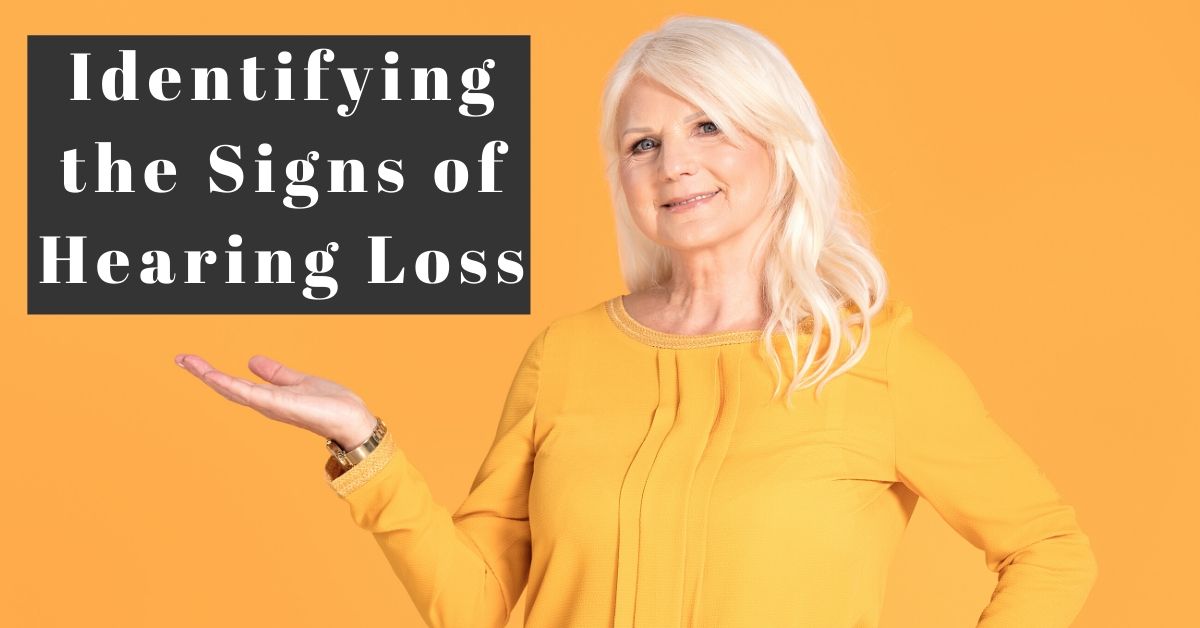
Do You Think You Might Have a Hearing Loss?
If you think you may be living with some degree of hearing loss, you are not alone. Approximately 48 million Americans, 18 and over, live with some form of disabling hearing loss and most do not seek treatment for about years from the first signs. The Hearing Loss Association of America is hoping to change that.
The HLAA, now in its 40th year, has a mission to open the world of communication to people with hearing loss by providing information, education, support, and advocacy. The organization strives to give tools to people living with hearing loss so that their lives may be fuller and to show them that they are not alone.
Symptoms
There are many symptoms associated with hearing loss and being aware of them can both aid in early diagnosis and avoid compromising your mental and physical health. You can start by asking broad questions, then work toward more specific ones. For example: Do you ask others to repeat themselves often? Do you have difficulty hearing on the phone? Do you have trouble focusing on your conversation in group settings?
Then, move on to more specific, situation-based questions like: Do you avoid your favorite outing with friends because it is too loud? Are large family gatherings difficult because many people are often speaking at the same time? Are you hesitant to disclose your hearing loss at work because you think it might compromise your job security?
If any of these are familiar, consult with a hearing health care professional.
Identifying Hearing Loss
Hearing loss is personal. Indeed, it is based on the results of a professional hearing examination, but it can also be attributed to one’s behavior and history. The aforementioned situations are a small example of reasons steps should be taken to properly diagnose potential disabling hearing loss.
HLAA recommends booking a consultation with an audiologist for a complete hearing test or see an otolaryngologist—or ear, nose, and throat specialist (ENT)—if you experience any of the following:
- History of pain, active drainage, or bleeding from an ear
- Sudden onset or rapidly progressive hearing loss
- Acute, chronic, or recurrent episodes of dizziness
- Visualization of blood, pus, cerumen plug, foreign body, or other material in the ear canal
- Unilateral or asymmetric hearing loss
There are also online questionnaires and self-tests available, as well as portals on websites that help you find a hearing specialist near you. The results from a hearing test can tell you what kind of hearing loss you have and the recommended next steps. If ever you are told that nothing can be done, do not be afraid to get a second opinion.
A Guide to Hearing Health Care Professionals
It’s not always easy to ask for help, but when you have gathered the courage to do so, where do you turn? The following is a reference to three types of hearing health professionals and their specialties:
- Audiologist, a health care professional qualified to perform a thorough evaluation of your hearing. They can determine the type of hearing loss and the degree to which you are afflicted. An audiologist can also determine if hearing aids can help and, if so, the best kind for you. They will recommend a treatment program to assist with any communication needs you might have and may recommend a medical evaluation
- Otolaryngologist, which is a big word for an ear, nose and throat doctor. An ENT is a highly trained physician trained in medical and surgical treatment of the ear, nose throat, and related structures of the head and neck. If you are searching for an otolaryngologist, the American Academy of Otolaryngology-Head and Neck Surgery is a good place to start.
- Hearing Instrument Specialist, a professional who has been certified by the National Board for Certification in Hearing Instrument Sciences (BC-HIS). These specialists are registered or licensed in all states and perform assessments, fits and dispenses hearing aids, and instructs in the use and care of said devices. If you are looking for a BC-HIS, visit the International Hearing Society’s website.
Absolute Hearing Care
These specialists, along with the ever-growing wealth on information available online, make it easier than ever to locate resources to aid your hearing health. Many websites can be stepping stones to other information, too. For instance, on the HLAA site alone, you can get information, find a professional, and learn about financial assistance that may be available to you. All of these resources aim to equip you with tools—information, hearing aids, cochlear implants, et cetera—to live your fullest life, where disabling hearing loss does not have the last word.
For thorough hearing health care, visit us at Absolute Hearing Care.
